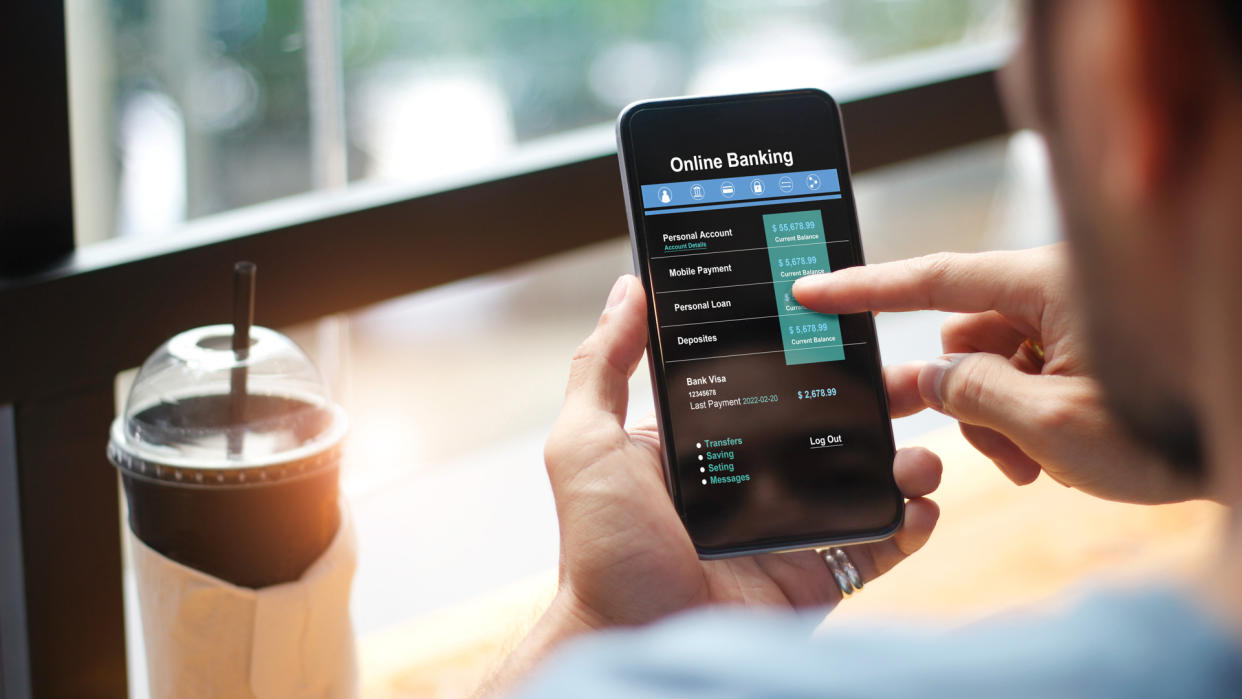Gen Z Spends Cash Fast: Why Digital Pay and Debit Cards Are Better for This Generation

Many Gen Zers have grown up hearing their parents advise them to use cash as a way to cut back on spending. The idea behind it is that it’s harder to part ways with physical dollars versus just swiping or tapping a card. However, for myself and many others in our generation, cash has the opposite effect. Once it leaves my bank account, it almost feels like it’s “free money,” leading to a tendency to overspend and make poor financial decisions.
Rare Cash: Check Your $2 Bills — They Could Be Worth Upwards of $4,500
Learn: How To Build Your Savings From Scratch
The notion of “carrying cash to spend less” is rapidly becoming outdated for Gen Z, whose tech savviness allows them to easily track their cashflow. This generation can monitor their spending on a bank app on their phone when utilizing debit cards, credit cards and digital pay. Plus, they can set up alerts on their phones to notify them when they are nearing pre-set spending limits.
Here are six ways spending using a debit card or digital pay can set Gen Zers up for a financially secure future.
Easy Budgeting
While spending with cash feels like buying things for “free,” it’s important to remember that the money inevitably came out of your account at some point. But that can be hard when, unlike using a debit card, cash transactions lack a digital record of where the money went.
“Many of us can’t remember what we ate for breakfast in the morning, and paying with cash can create a similar sensation,” said Emily Irwin, managing director at Wells Fargo. “When you use digital payment options or debt cards, you have the ability to review your purchases regularly in order to understand better where you’re allocating your dollars. This can help you create a budget that is realistic rather than aspirational, and, as a result, should be easier for you to follow. It can also help you reallocate your dollars if there are any surprises.”
I’m a Financial Planning Expert: 6 Worst Purchases To Make in an Economic Downturn
Identifying Trends
As members of Gen Z typically fall between the ages of 11 and 26 (born between 1997 and 2012), they care about establishing good financial habits early. Digital payments provide them with valuable information through banking and money-tracking apps that aid them in long-term planning.
“You may observe spikes around April 15 or the holiday season, or perhaps summer is always more expensive because you’re taking a vacation or renting a beach home,” Irwin said. “While many Gen Zers tend to be prepared for the short-term ‘weekly’ and ‘monthly’ expenses like groceries, rent and cell phone bills, the annual one-offs may be more difficult to remember to plan for because they occur less frequently. But, by identifying these trends, Gen Zers can gain insights to distinguish between actual one-offs, like repairing a car, versus recurring seasonal or annual expenses.”
Building a Credit History
“If you use a credit card and treat it akin to a debit card (aka pay it on time and in full), then you’ll get the added bonus of building a strong credit score, which can pay dividends in the future,” Irwin said. “When you need to obtain a loan to make a major purchase, such as a home or new car, your credit score is often one of the factors used to determine if the loan should be made and on what terms.”
Scoring Rewards
Consistently paying with cash means you might be leaving free money on the table.
“Most credit card companies offer reward programs where you can get cash back or points for your purchases or additional benefits such as travel insurance,” Irwin said. “If used wisely, these can be lucrative perks that can be converted to dollars, flights, hotel or added protection, and ultimately save you money.”
Having Your Money ‘Backed Up’
If you lose a $100 bill, poof — it’s gone forever. On the other hand, paying with Apple Pay or a debit card provides greater security. In a worst-case scenario where someone steals your card and charges $1,000, the bank can assist you in recovering your money.
“Most financial institutions offer the ability to freeze or lock your digital payments, debit cards and credit cards,” Irwin said. “So, if you’ve misplaced your phone or wallet, there is no need to fret — you can contact the companies and ask for your payment options to be frozen or locked either temporarily or permanently. If you lose your wallet that’s stuffed with cash, then you may be out of luck unless it’s picked up by a Good Samaritan.”
The Option for Alerts and Automation
There is nothing more awkward than having to pull out your wallet and count your cash before making a purchase to ensure you can afford it. With digital payments, Gen Z users can easily monitor their transactions in real time, allowing for more financial transparency and informed decision-making.
“If you use an online tracking service like Mint, you can get alerts if you spend over a certain amount overall or in a specific category,” said Rick Nott, CFP and senior wealth advisor at LourdMurray. “It’s like having a money coach in your pocket. Paying yourself first is the easiest way to spend less (out of sight, out of mind).”
More From GOBankingRates
I'm a Real Estate Agent: Buy Real Estate in These 10 Cities To Be Rich in 10 Years
See GOBankingRates' Top 100 Most Influential Money Experts and Get Advice
What's the Best Small Business in Your State? Vote For Your Favorite
This article originally appeared on GOBankingRates.com: Gen Z Spends Cash Fast: Why Digital Pay and Debit Cards Are Better for This Generation
